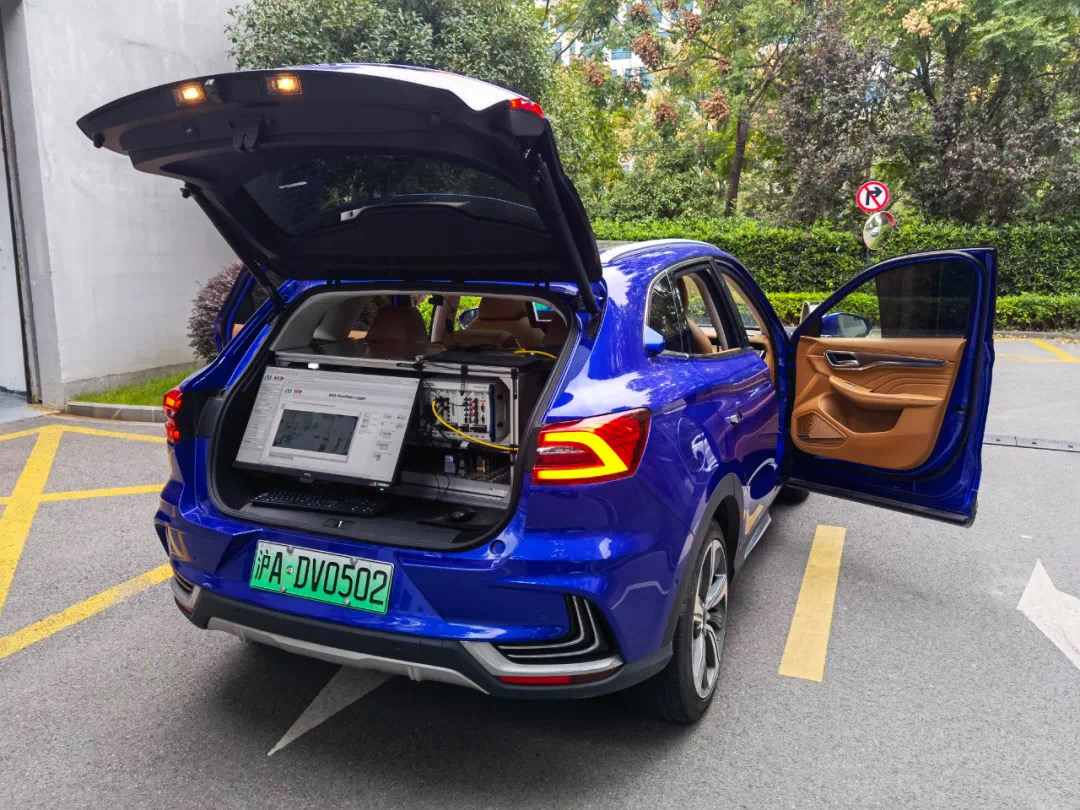A fleet of vehicles is available with test equipment for performing research into Advanced Driver Assist Systems, improving workflow and data management
National Instruments (NI) is deploying a fleet of vehicles in Europe, the United States and China that will enable ADAS and Autonomous Driving engineering teams to address top challenges related to data volume, quality, access and utilisation.
The deployment by NI is taking place along with partner companies, all of whom were involved in equipping the vehicles with high-performance in-vehicle data recording and storage systems, primarily from NI and Seagate Technology. In addition, integration services from ADAS experts Konrad Technologies and VSI Labs were used. The collaboration further enables a connected workflow by combining best-in-class technologies across the global supply chain.
Safe Autonomy
Ensuring the safe operation of all levels of automated driving is a very important driver of consumer adoption and acceptance of the technology. In addition, engineering teams struggle with the need for vast amounts of high-quality data to train, test and ensure higher validation test coverage of their perception algorithms and hardware.
According to Drita Roggenbuck, senior vice president and general manager at NI, ADAS data recording is one of the most complex challenges for the ADAS and AD community, as data from multiple sensor modalities (camera, radar, lidar, ultrasonics, infrared, IMUs/INS, GNSS and vehicle networks) must be logged synchronously and analysed together to train and validate the performance of safety functions and features.
“We are excited to team up with other companies involved in the development of ADAS and AD technology to provide a method of overcoming this challenge and bringing the promise of autonomous driving more safely and more quickly to the road,” explains Roggenbuck.
Melyssa Banda, vice president of Lyve Mobile Solutions at Seagate Technology further explains that the strategic partnership with NI has opened up tremendous opportunities for Seagate to take part in this meaningful project.
“We are excited about the amount of data the research vehicles will collect, which will help take our joint ADAS systems with NI to the next level,” she explains.
Sensor Data Recording
Through this initiative, NI and its collaborators will research, develop and demonstrate their capabilities involved in recording high-quantity and high-quality sensor data in the field, efficient data movement via data transfer services and increased data utilisation for training, analysis and validation of algorithms in the lab.
Michael Konrad of Konrad Technologies explains that the collaboration represents a great step forward for the development of the PXI high-performance data-logging system. Synchronized collecting of real-world scenario data from several sensors and vehicle ADAS ECUs is essential to improve the performance of autonomous driving vehicles.
“This data can be used for the data replay to ADAS ECUs to test perception algorithms and to improve the overall performance,” he says.
This initiative builds on the existing work between NI, Seagate Technology and Konrad Technologies, and announces a new collaboration with US-based ADAS research firm, VSI Labs. VSI Labs will conduct research while driving their ADAS recording-equipped vehicle across the United States in an effort to improve the use of data across the entire ADAS an AD engineering workflow. The data collected on the road will also help NI and these companies further evolve their joint approaches, ranging from data recording, simulation, digital twins and hardware-in-the-loop testing.
“VSI is thrilled to be partnering with NI to test and validate their ADAS technology. Collecting data across a diverse range of scenarios throughout the Drive Series is crucial to furthering ADAS and AD applications, and we’re looking forward to hitting the road,” concludes Phil Magney, founder and president of VSI Labs.
- UK manufacturing steps up to COVID-19 crisis - April 2, 2020
- Clustering Innovation - March 12, 2020
- A Global Monitor - March 6, 2020

